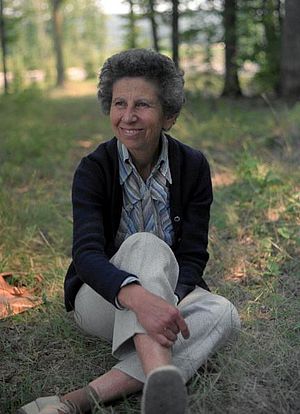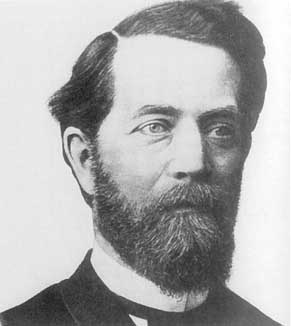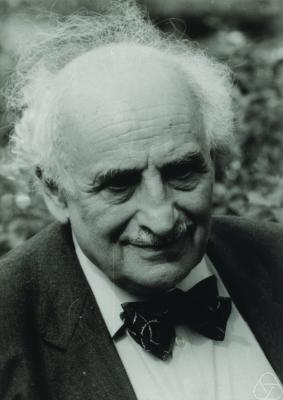ICMI News June 2021
ICMI Newsletter -Special Edition- June 2021
Editors:
Jean-Luc Dorier (ICMI Secretary General)
Merrilyn Goos (ICMI Vice President)
Lena Koch (ICMI Administrative Manager)
Email addresses:
icmi.secretary.general@mathunion.org
merrilyn.goos@ul.ie
icmi.administrator@mathunion.org
CONTENTS
- From the Editors
- Call for Nominations for the 2024 ICMI Emma Castelnuovo Award
- Call for Nominations for the 2024 Felix Klein and Hans Freudenthal Awards
- Call for Proposals for ICMI Studies
From the Editors
Dear Readers,
We are excited to announce that the newly designed ICMI Newsletter is finally here!
In the last few months, we have been working to revamp our newsletter to improve your experience. Now, you can follow our news on-the-go directly via your email or browser, without having to download any external files. To do so, simply subscribe to our email newsletter here!
If you have any thoughts or feedback regarding the newsletter, we welcome you to drop us a message anytime.
This ICMI Newsletter comes as a special edition to announce the Call for Nominations for three future ICMI Awards to be presented during ICME-15 in 2024.
The Award ceremony for the previous 2017 and 2020 Awards will be held during the Opening Ceremony of ICME-14 on July 12th here.
We also would like to take this opportunity to remind the community to register for ICME-14 here. Please note that June 20th, 2021 (Beijing Time) is the last day for registration and payment.
Yours truly,
Merrilyn Goos, Lena Koch and Jean-Luc Dorier
2. Call for Nominations for the 2024 ICMI Emma Castelnuovo Award

Deadline for nominations: 30 November, 2022
The Emma Castelnuovo Award recognizes outstanding achievements in the practice of mathematics education consistent with ICMI’s principles:
- the development of mathematical education at all levels and;
- the promotion of reflection, collaboration, exchange, and dissemination of ideas on the teaching and learning of mathematics from the primary to the university level.
The award was named after Emma Castelnuovo (1913-2014), an Italian mathematics educator, in celebration of her 100th birthday and to honour her pioneering work.
The first Emma Castelnuovo medal was awarded to Hugh Burkhardt and Malcolm Swan in 2016 at the 13th International Congress on Mathematical Education (ICME-13) in Hamburg, Germany.
Eligibility for the Emma Castelnuovo Award
The award is open to nominees from all in the mathematics education community, with the exception of:
- current ICMI Executive Committee members
- current members of the Emma Castelnuovo Award Committee
- previous winners of the award.
The Emma Castelnuovo Award honours an individual, or a small team of individuals, for work in the development and implementation of exceptionally excellent and influential work in the practice of mathematics education related to one or more of the following:
- classroom teaching
- curriculum development
- instructional design (of materials or pedagogical models)
- teacher education programmes, and/or
- field projects with a demonstrated influence on schools, districts, regions, or countries.
The Emma Castelnuovo Award seeks to recognize and encourage efforts, ideas and their successful implementation of mathematics teaching and learning, as well as to showcase models and exemplars of inspirational practices.
Criteria for Evaluating Nominees
Nominees for the Emma Castelnuovo Award will be evaluated in light of the following criteria:
- the educational rationale for the nominee’s work, and what served as a catalyst for that work
- the mathematics teaching/learning problem/s addressed by the nominee
- the nominee’s role in addressing the problem/s and opportunities, whether they involve curriculum development, pre-service teacher education, in-service professional development/learning, instructional design, field projects, or other areas of mathematics education practice
- the conditions under which the work has taken place, that is, the cultural and political context, infrastructure, funding support, and people involved
- the originality and creativity of the work, the approaches taken to address the identified mathematics teaching/learning problem/s, the design and development process, and the products/outcomes of the work
- the extent and quality of networking with key stakeholders (e.g., in bridging theory and practice)
- evaluations of the work
- the extent of the influence/impact of the work on educational practice in the teaching/learning of mathematics, including quantitative or qualitative evidence of that influence
- the potential of the work to serve as a model, either for inspiring others addressing similar problems, or because an approach was taken that could be applied elsewhere with appropriate modifications.
Nomination Process and supporting Documentation required
Nominations for the Emma Castelnuovo Award should be made by the nominator on the Nomination Form
and must include the following attachments:
- A one-page summary statement outlining the reasons for the nomination.
- A document (max. 5 pages) describing the nominee’s work in relation to the above criteria.
- An account (max. 10 pages) including the genesis of the nominee’s work and the roles played by the nominee as well as other significant people (if any). This account should also contain a description of the impact (locally, nationally, internationally) of the work on the practice of mathematics teaching and learning, where and by what means the work has been disseminated, the extent of the adoption/implementation of the work, and/or further developments arising from the work.
- Brief curricula vitae (max. 2 pages per person) of the nominee(s).
- Electronic copies of three publications that reflect the nominee’s work related to the practice of mathematics education (e.g., journal articles, textbooks, instructional materials, CD-ROMs, etc.). N.B. If a publication is not in English, include an extended abstract (max. 2 pages) in English.
- Three to five letters of support from different stakeholders/scholars, preferably from different countries.
- The names and e-mail addresses of the nominator/s who can provide further information, if needed.
All nominations MUST be sent by e-mail to the Chair of the Emma Castelnuovo Award Committee, Professor Emerita Helen Forgasz (), no later than 30 November, 2022.
Announcement of the Awardee of the 2024 Emma Castelnuovo Award
The recipient of the award will be announced late in 2023, and the award will be presented at ICME-15 in July 2024 in Sydney, Australia. The awardee (or representative) will be invited to present a special lecture at ICME-15.
The 2024 Emma Castelnuovo Award Committee
Professor Emerita Helen Forgasz was nominated by the President of ICMI as Chair of the 2024 Emma Castelnuovo Award Committee. There are five other members of the Committee. They remain anonymous until their time on the Committee comes to an end. The six Committee members come from six different countries, and represent different world regions. The work of the Emma Castelnuovo Award Committee is confidential.
The Committee now welcomes nominations for the award.
Information about all ICMI awards can be found here.
For the names of previous award recipients see here.
Prof. Em. Helen Forgasz
Chair of the 2024 Emma Castelnuovo Award Committee
3. Call for Nominations for the 2024 Felix Klein and Hans Freudenthal Awards
Dear Members of the International Mathematics Education Community,
Starting in 2003, the International Commission on Mathematical Instruction (ICMI) has given two awards to recognize outstanding accomplishments in mathematics education research:
- the Felix Klein Award, for lifelong achievement in mathematics education research,
- the Hans Freudenthal Award, for a major program of research on mathematics education.
As of 2024, these awards will be given quadrennially, during the year that an ICME is held. The call for the 2024 awards is given below. Please consider nominating a worthy candidate. This is our mechanism for highlighting the contributions of major scholars who have moved the field forward through focused research programs and lifetime contributions. We recognize that it’s a lot of work to put together a compelling nomination, but please do! ICMI Awards Committees can only choose recipients from officially submitted nominations for the current round, accompanied by full documentation, as specified in the call.
Thank you for considering this call seriously. We look forward to receiving your nominations.
Alan Schoenfeld
on behalf of the ICMI Klein and Freudenthal Awards Committee

Felix Klein Award
The Felix Klein medal is awarded for life-time achievement in mathematics education research. This award acknowledges senior scholars who have made field-defining contributions over their professional careers. Awardees will have had an impact both at the national level, within their own countries, and at the international level. We have valued in the past those candidates who not only have made substantial research contributions, but also have introduced new issues, ideas, perspectives, and critical reflections. Additional considerations have included leadership roles, mentoring, and peer recognition, as well as the actual or potential relationship between the research done and improvement of mathematics education at large, through connections between research and practice.
Nominations for the Felix Klein Award should include the following:
- a document (max. 8 pages) describing the achievements of the nominee (e.g., their theoretical contribution and/or empirical research, leadership roles, graduate supervision and mentoring, and peer recognition) and reasons for the nomination (including a description of the nominee’s impact on the field);
- a one-page summarizing statement;
- a curriculum vitae of the nominee (max. 20 pages);
- electronic copies of three of the nominee’s key publications;
- three letters of support (preferably from different countries); and
- the names and e-mail addresses of two persons other than the nominee herself or himself who could provide further information, if needed.
All nominations for the Felix Klein Award 2024 must be sent by e-mail to the Chair of the Committee, Alan Schoenfeld using the email address: no later than 30 November, 2022. Please also use the Felix Klein Award Nomination Form
The chair will typically confirm receipt within a week of receiving the nomination. If more time than that elapses, please write the Chair directly, to make sure the nomination was not misdirected to a spam folder.

Hans Freudenthal Award
The Hans Freudenthal medal acknowledges the outstanding contributions of an individual’s theoretically robust and coherent research program, which has had a clear impact on our research community. It honors a scholar who has initiated a new research program and has brought it to maturation over the past 10 years. Freudenthal awardees should also be researchers whose work is ongoing and who can be expected to continue contributing to the field. In brief, the criteria for this award are depth, novelty, sustainability, and impact of the research program.
See here for further information about the awards and for the names of past awardees.
The ICMI Klein and Freudenthal Awards Committee consists of a chair (Professor Alan Schoenfeld) and five other members who remain anonymous until their terms have come to an end. The Committee is entering the cycle of selecting awardees or the 2024 awards. It welcomes nominations for the two awards from individuals or groups of individuals in the mathematics education community. The awards committee is committed to the equitable consideration of all researchers in mathematics education, including candidates of diverse national origin, race, ethnicity, sexual orientation, and members of marginalized or under-represented communities. We encourage the nomination of a broad range of highly qualified candidates, and will give all applications received full and careful consideration.
Nominations for the Hans Freudenthal Award should include the following:
- a document (max. 5 pages) describing the nominee’s research program and reasons for the nomination (including a description of the nominee’s impact on the field);
- a one-page summarizing statement;
- a curriculum vitae of the nominee (max. 10 pages);
- electronic copies of three of the nominee’s key publications;
- three letters of support (from different countries, if possible); and
- the names and e-mail addresses of two persons other than the nominee herself or himself who could provide further information, if needed.
All nominations for the Hans Freudenthal Award 2024 must be sent by e-mail to the Chair of the Committee, Alan Schoenfeldusing the email address: no later than 30 November, 2022. Please also use the Hans Freudenthal Award Form
The chair will typically confirm receipt within a week of receiving the nomination. If more time than that elapses, please write the Chair directly, to make sure the nomination was not misdirected to a spam folder.
Prof. Alan Schoenfeld
University of California, Berkeley
Berkeley, CA 94707-1670 USA
4. Call for Proposals for ICMI Studies
ICMI Studies are a central activity of the International Commission on Mathematical Instruction. An ICMI Study addresses a theme of particular significance to contemporary mathematics education and is conducted by an international team of leading scholars and practitioners. The team is appointed by the Executive Committee of ICMI and it is expected to conduct the Study in line with the guidelines (see below).
Each Study is built around an international conference and results in a published Study Volume. The Study Volume is a critical review and synthesis of the domain that also anticipates future trends and needs.
The ICMI Executive Committee is now calling for proposals for future ICMI Studies.
The proposal may be submitted by individuals or teams of leading scholars in the field representing the proposed theme. The proposal should use the template below and be no more than one page in length.
It should address the following essential elements that are taken into account by the Executive Committee when considering a theme for an ICMI Study:
- The theme is of broad international interest, representing either a mature or emerging field;
- There is sufficient substance in terms of research, literature and practice, in a diversity of contexts and cultures, to ensure productive work and to provide a coherent and useful vision of the theme at stake;
- There is a critical mass of scholars of renowned expertise in the theme who can provide leadership, vision and experience and are committed to invest the effort involved in the production of a Study over a 4–5 year time frame.
The selection of a Study theme is the responsibility of the ICMI Executive Committee, which assesses the relevance, substance and depth of the theme and the possible composition of the Study’s leadership team. Academic standing, diversity and representativeness of the possible leadership team are taken into account to align with the ICMI’s commitment to excellence and equity.
The ICMI EC may decide to redefine the scope and focus of a chosen theme as well as the appointment of Study co-chairs who may be different from those who proposed the study. In any case, the EC may decide to accept, modify or reject the suggested theme, or to set the proposal aside for consideration at a later date. All proposals will be acknowledged and receive feedback from the ICMI EC.
Those submitting proposals are strongly advised to familiarise themselves with both the current guidelines for conducting an ICMI Study (https://www.mathunion.org/icmi/publications/icmi-studies/guidelines-conducting-icmi-study) and information on previous ICMI Studies (https://www.mathunion.org/icmi/activitiesicmi-studies/finalized-and-published-studies).
Proposals should be sent to by 1st September 2021.
If you need more information, please contact ICMI Studies Editors:
Frederick Leung and Jean-Luc Dorier and/or , ICMI Vice President.
Template Proposal for an ICMI Study
Please send toby 1st September 2021.
- Submitted by: (First and Last name(s), home institution(s), email address(es))
- Please describe the proposed theme of the Study (e.g., a working title):
- Details of the Proposal: Please address the following essential elements that are taken into account by the Executive Committee when considering a theme for an ICMI Study:
(i) The theme is of broad international interest, representing either a mature or emerging field;
(ii) There is sufficient substance in terms of research, literature and practice, in a diversity of contexts and cultures, to ensure productive work and to provide a coherent and useful vision of the theme at stake;
(iii) There is a critical mass of scholars of renowned expertise in the theme who can provide leadership, vision and experience and are committed to invest the effort involved in the production of a Study over a 4-5 year time frame. - Proposed Co-chairs:
Possible IPC members:
In addition to the one-page proposal, please attach a short (1-2 pages) CV of the main proposer.